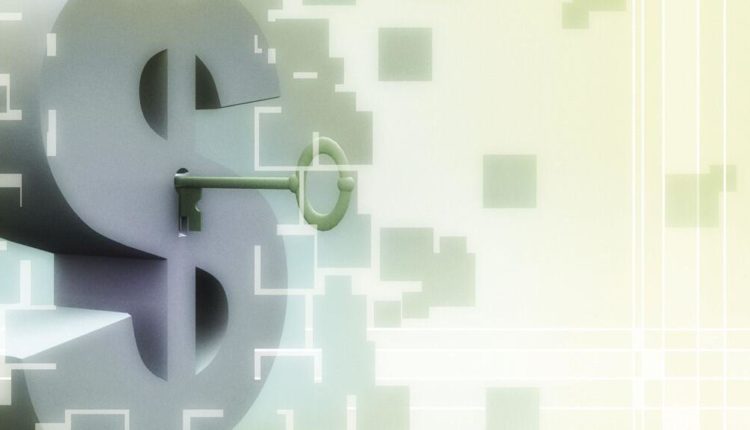NerdWallet
If you have more accounts than money, the usual advice is to cut costs and find extra income. But some ways of collecting cash can be much more expensive than others. Here are four to avoid, if possible, and what to consider instead.
Contents
WARNING RAIDING THE RETIREMENT PLAN
Much of the money paid into retirement plans leaks due to withdrawal difficulties, payouts when changing jobs, or loans that are not repaid. On the same subject : 10 Generous Financial Gifts (Other Than Cash) for Grads. A recent study for the Joint Congressional Taxation Committee estimated that each year, 22% of the contributions of people over the age of 50 are withdrawn prematurely, mostly in cash as people leave work.
But these early withdrawals are usually expensive and can leave you with too little money to retire. You usually have to pay penalties and distribution income tax, and you waive any future deferred tax that the money could have earned.
You may have other options. If you are still employed, you could borrow from your 401 (k) or temporarily suspend pension plan contributions to free up money. If you have a Roth IRA, you can withdraw an amount equal to your contributions without paying taxes or penalties.
If you can’t avoid an expensive pull, you can minimize the damage by taking out only what you need and leaving the rest to grow. For example, if you are leaving work, you could convert your 401 (k) balance to an IRA and take only what you need from the IRA. This could prevent you from having to pay off the entire bill.
DO NOT REMOVE HEALTH INSURANCE
You may be healthy now, but you are only one serious accident or illness away from catastrophic medical bills. On the same subject : Why You Can’t Turn Your Roth IRA Into a Billion-Dollar Tax Shelter — ProPublica.
If you do not have access to health insurance through work, check the Affordable Care Act exchange at HealthCare.gov. Premiums have been reduced for most people this year, and coverage may be free for many, including people receiving unemployment benefits this year.
An analysis by the independent health research center KFF found that the number of people qualifying for subsidies increased by 20% as a result of the U.S. Rescue Plan Act passed in March, and 4 out of 10 uninsured people would qualify for a free or near-free plan.
You can also reduce your premiums by opting for a high-deductible plan. That means you pay thousands of dollars out of your own pocket if you get sick or injured, but at least you won’t be faced with five- or six-digit bills that could bankrupt you.
Watch out for high cost loans
Among the most expensive ways to borrow are payday loans, vehicle ownership loans and loans that do not require a credit check. High loans make it easier to slip into a debt cycle, in which you cannot make payments and you are forced to borrow again. This may interest you : Green's Portfolio – May 2021 – Seeking Alpha. Proprietary loans put your vehicle at risk of being seized for non-payment.
These alternatives may not be as quick or convenient, but they are often better for your financial health:
• If you need help paying your bill, start by checking 211.org, a center for the exchange of government and charitable funds.
• If you cannot repay the loan, ask the lender about patience and other difficulty options.
• If you have a credit card, consider a cash advance. They usually have double-digit interest rates, but high-cost loans usually have three-digit interest rates.
• If you are employed, you can ask your employer for a salary advance or emergency loan.
Another option if you’re employed: prepay apps like Earnin, Dave, or Brigit. Be careful though, because fees can make these loans as expensive as payday loans, and trap you in a similar debt cycle if you rely on them.
DO NOT COVER THE TAX
If you cannot pay your tax bill, you may be tempted not to file a return. But failure to apply carries much greater penalties than non-payment, says CPA Neal Stern, a member of the CPA American Institute’s Financial Literacy Commission. In addition, there is no audit statute of limitations when you do not file a claim. The IRS may come after you years or decades later.
The IRS has payment plans that allow you to pay your bill over time. Stern could also charge a tax bill on a credit card or consider getting a personal loan to pay what you owe, Stern says.
Ignoring the situation is not the solution. The IRS has automated processes that align forms like W-2 and 1099 with tax returns, and if something is missing, it can quickly result in computer-generated discrepancy or audit notices, Stern says.
If you owe and don’t pay, the IRS can take away your bank accounts or collect your salaries and other income until all unpaid taxes, penalties, and interest are collected, Stern says. The IRS can even seize and sell your property.
“The IRS is probably the most powerful and ruthless collection agency you can find,” says Stern. “If you owe taxes, it’s better to pay as much as you can, as soon as possible.”

